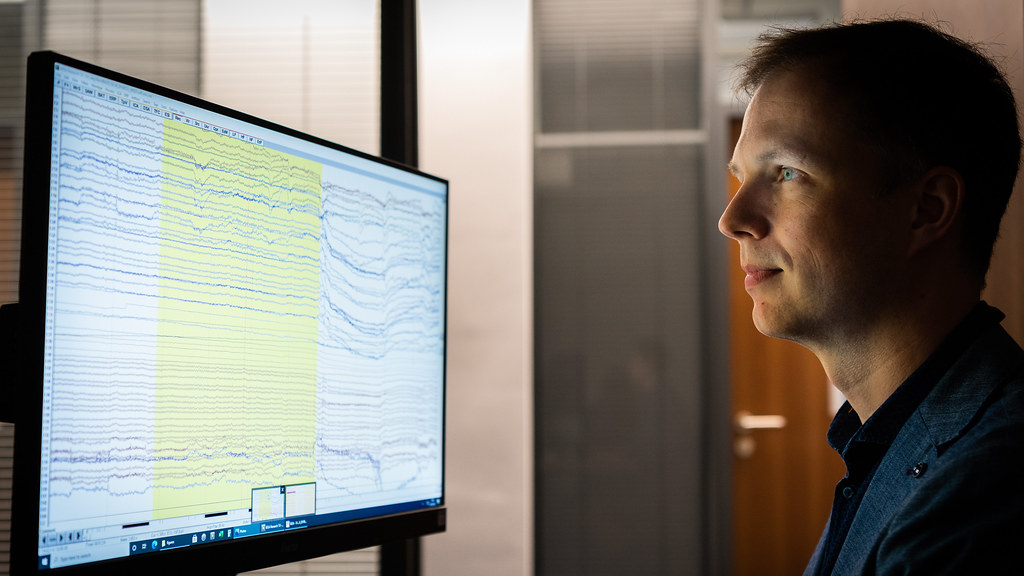Skip to content

A significant NIHR grant will enable researchers at Bath to develop revolutionary technology to help expand early dementia diagnosis.

Through Fastball EEG, Dr George Stothart looks for subtle changes occurring in a patient’s brain waves, which can be early sign that dementia or Alzheimer’s may be present. Image credit: University of Bath.
A simple but revolutionary test to improve early detection for dementia and Alzheimer’s disease could soon be helping patients and their families, thanks to a significant £1.5 million funding boost awarded to the universities of Bath and Bristol.

Supported by the National Institute for Health and Care Research (NIHR)’s Invention for Innovation (i4i) funding, the project will see researchers Dr George Stothart and Dr Liz Coulthard scale-up testing and development for their innovative ‘Fastball EEG’ dementia assessment at Southmead Hospital in Bristol.
‘Fastball’ is a passive, completely non-invasive test which measures patients’ brain waves whilst they watch a series of flashing images displayed on a screen. Developed in-house by the researchers, the technology requires users to wear an electroencephalogram (EEG) headset, which is linked to a computer for analysis.

Previous research from Dr Stothart, Dr Coulthard and colleagues has shown Fastball to be highly effective at picking up small, subtle changes in brain waves which occur when a person remembers an image. They have demonstrated that this response changes as a person develops dementia, offering hope as a breakthrough for early diagnosis.




